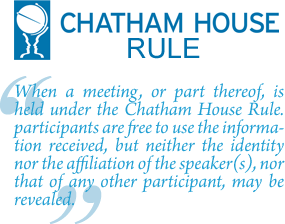
Instructors |
|||
 |
Kersi F Porbunderwalla Secretary General Copenhagen Compliance |
 |
Ivan Savov Chairman European Risk Policy Institute |
ONE-DAY EU GENERAL DATA PROTECTION REGULATION 'CLASSROOM' COURSE
provides a comprehensive introduction and the practical understanding of the implementation implications, legal requirements and how to implement the regulation within the organisation.
During the course, we will go thru the implementation path to ensure EU GDPR compliance, and how you as an IT and data consultant can help companies avoid additional work, and loss of reputation resulting from data breaches. Besides implementation structures, we will also focus on cyber resilience, data protection, and cybersecurity issues that are mandatory within the law.
Scope: During the seminar, we will review current IT and data issues regarding GDPR implementation and how you can help companies to develop an IT and data security strategy. The seminar will be conducted as a GDPR workshop to identify the significant effects of GDPR and recognise several key areas of action, including a roadmap & framework.
Certification: The GDPR FAS certification course will provide a complete overview to the EU GDPR, with a practical understanding of the implications and legal requirements for an organisation of any size. We will further focus on the practical application (Foundation) and the material substance of the GDPR articles on the GDPR execution including scope, approach, structure, data flows and mapping to ensure ongoing compliance. (Application & Substance)

Dates:
18th October and 16th November 2017Venue:
Grand HotelSofia
Time:
Session start from 09:00-16:30.Registration at 08:30
Price
350 Euro for the course150 Euro for certification
Course Content
- The background of EU GDPR and the significant terminology.
- The fundamental differences between the Data Protection Act and the EU GDPR.
- The data subject’s rights to individual’s personal data.
- Procedure for Processing Subject Access Requests (access to personal data)
- GDPR Privacy rules; marketing requirements and breaches and summary.
- The implementation track to EU GDPR compliance:
- Privacy by Design and Default
- The What, When and How of Privacy Impact Assessments (PIA)
- Conducting Data audits
- Training and competence requirements
- Incident response and breach reporting
- Updating policies and procedures
- International data transfers.
- Multijurisdictional & territorial scope of the EU GDPR
The course includes:
- Professional training venue with breakfast, lunch and refreshments.
- Comprehensive documentation (as digital copy. PDF file optional).
- A chronological summary of all GDPR articles with an explanation on each article to ensure the right understanding of the articles in question during implementation
- EUGDPR Institute DPIA Template and Privacy Policy
- The Copenhagen Compliance® GDPR Roadmap and Framework
- EU GDPR Foundation, Application & Substance Exam (EU GDPR FAS). (optional)
- Certificate of attendance

The EU General Data Protection Regulation (GDPR)
- 2016 Annual Report - The state of privacy 2017: EDPS provides mid-mandate report
The GDPR has been, and will continue to be, the point of reference for our work. As set out in the Strategy for the EDPS mandate, the aim is to make data protection as simple and effective as possible for all involved. - GDPR Course in Copenhagen
The first two comprehensive GDPR seminars were held in Copenhagen on n November 2016 and March 2017; both were a tremendous success - The multijurisdictional scope of the EU GDPR
Crucial to the General Data Protection Regulation (GDPR) and integral to the entire legislation, is its explicitly extended territorial scope. This rather ambitious piece of legislation obviously seeks to exercise control and impose sanctions in jurisdictions beyond the EU and when EU citizen data protection rights are at risk. - The correct GDPR implementation can protect the organisation on data and IT Governance
Getting started the right way to assess, compile and measure the tremendous amount of effort required for GDPR compliance cannot be performed by other than in-house staff who know the idiosyncrasies of digital platforms, software ecosystems and how to streamline the current data and communication structures. - If you get GDPR certified, you get recognised for your privacy efforts and data knowledge
There is a rush to solve the GDPR problem. However, it is important to secure the right approach at the right time with the right process and above all the right certification. At our GDPR events you can get certified as the holder of an EU GDPR FAS exam certificate and register your qualification on the international The EuroSox Institute® Successful Candidate Register for free. - Preparing The Structure and Plan For EU General Data Protection Regulation
Learn how to change your practices within your IT platform and data environment to comply with GDPR, data privacy regulation. At the seminar on the 20th April 2017 at The Confederation of Danish Industries we focus on the following GDPR implementation issues. - How will the new EU data protection requirements (GDPR) affect your organisation?
The EU General Data Protection Regulation (GDPR) is new legislation that provides a single, harmonised data privacy law for the European Union. With the increasing risk of data breaches from cyber-attack, the GDPR aims to prevent the loss of personal data by improving data security for all individuals living in EU member states. - The why, the how, the who, the what, the exceptions, the consequences and the solution to GDPR compliance
The aim and goal of the EU General Data Protection Regulation (GDPR) are to both strengthen and unify the data protection rights of individuals within the European Union (EU) and at the same time address the transfer of personal data outside the EU. The compliance deadline for GDPR is May 2018; however, the amount of internal collaboration to address on how data is collected, stored, used and archived means that planning compliance to GDPR cannot wait any longer - Personal accountability for data protection at the board level is an issue.
In the good old days, the board of directors were accountable to the shareholders for its actions. This limitation has now changed forever. The Board and the committee members are now more responsible to the oversight authorities as well as to the annual assembly and the shareholders. - Characteristics of a Responsible Lift-Off of the General Data Protection Regulation (GDPR) implementation.
The timeline & milestones for EU general data protection regulation require that companies throughout the EU address the significant challenges in handling personal data when the General Data Protection Regulation (GDPR) goes live. The new GDPR regime cannot be automatically translated into the current IT platforms and data structures within the organisation. However, when stakeholders figure out how the current data is collected, stored, accessed, disclosed and utilised the difficulties in complying are activated. - Principle GDPR definitions that will have a considerable impact on the IT, Data and security policies of the organisation
- GDPR is an opportunity for organisations to re-balance their total digital engagement
From time to time, companies are faced with regulatory Governance, Risk Management, Compliance (GRC) and IT-Security issues that are on the onset extremely cumbersome. It probably started with SOX (Sarbanes-Oxley Act) in 2004 for added good Governance, after the financial crisis in 2008. The Glass-Steagall Act, (37 pages) was replaced by Dodd-Frank (848 pages) for added Risk Management processes. 20,000 new regulatory requirements for the financial services industry were created in 2015 for added Compliance and to avoid big banks to fail. Now added IT-Security and Data Protection systems must be implemented under The General Data Protection Regulation (GDPR) to protect and preserve all corporate data. - Ready or not, GDPR is round the corner
Another year has passed with a collection of massive data breaches. The year 2015 had some massive violations. However, 2016 has proved to be worst year, with two of the largest data breaches in the history of mankind. Besides the massive hack at the Democratic National Committee with significant global political implications and a continued onslaught of breaches from healthcare, to point pf sale technology. - Do not mess up the EU Data Protection Compliance
Based on recent research, a recent survey indicates that up to 75 percent of Nordic organisations could be at risk of sanction under the new EU GDPR rules. Primary results: more 52% have done nothing at all to prepare themselves for GDPR, 36% were unaware of its existence. - GDPR spelt backwards is Regulation on Protecting Data with Governance
Getting started head on to assess, compile and measure the tremendous amount of effort required for GDPR compliance cannot be performed by other than in-house staff who know the idiosyncrasies of digital platforms, software ecosystems and how to streamline the current data and communication structures. - The Changing Dynamics of Data Protection, IT Governance and the International Transfer of Data
Many organisations face the challenge of needing to comply with the new EU General Data Protection Regulation (GDPR) by May 2018. There is no shortage of advice as to what these organisations need to live up to, but currently, there is little information or guidance as to how to do it. Developing a GDPR Roadmap with an implementation framework should be an early priority to ensure an organisation is focused on doing the right things, in the right way and at the right time. - GDPR workshop and assessment.
We recommend that when you address the EU GDPR compliance requirements, all organisations must take the following two steps before launching the implementation process.- Conduct an in-house workshop to identify the key impacts of GDPR and determine and prioritise the exact number of key deliverables, with a description of each key task and deliverables and the resources needed.
- Get a regular data audit of the personal data in your organisation and receive a data flow map that identifies where your GDPR relevant data is stored. The review will enable you to implement measures to reduce the risk of an information security breach and be in-compliance with the GDPR mandates.
For details see: http://www.copenhagencompliance.com/gdpr/GDPR-Key-Framework.pdf